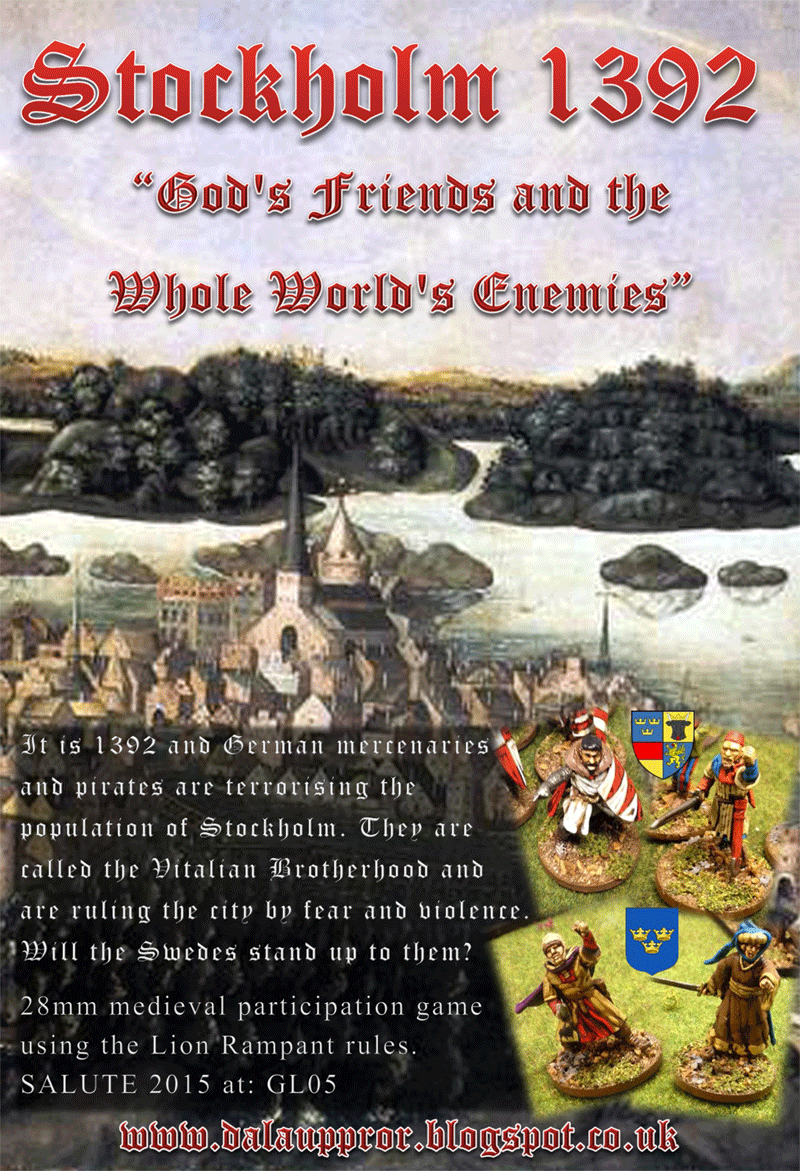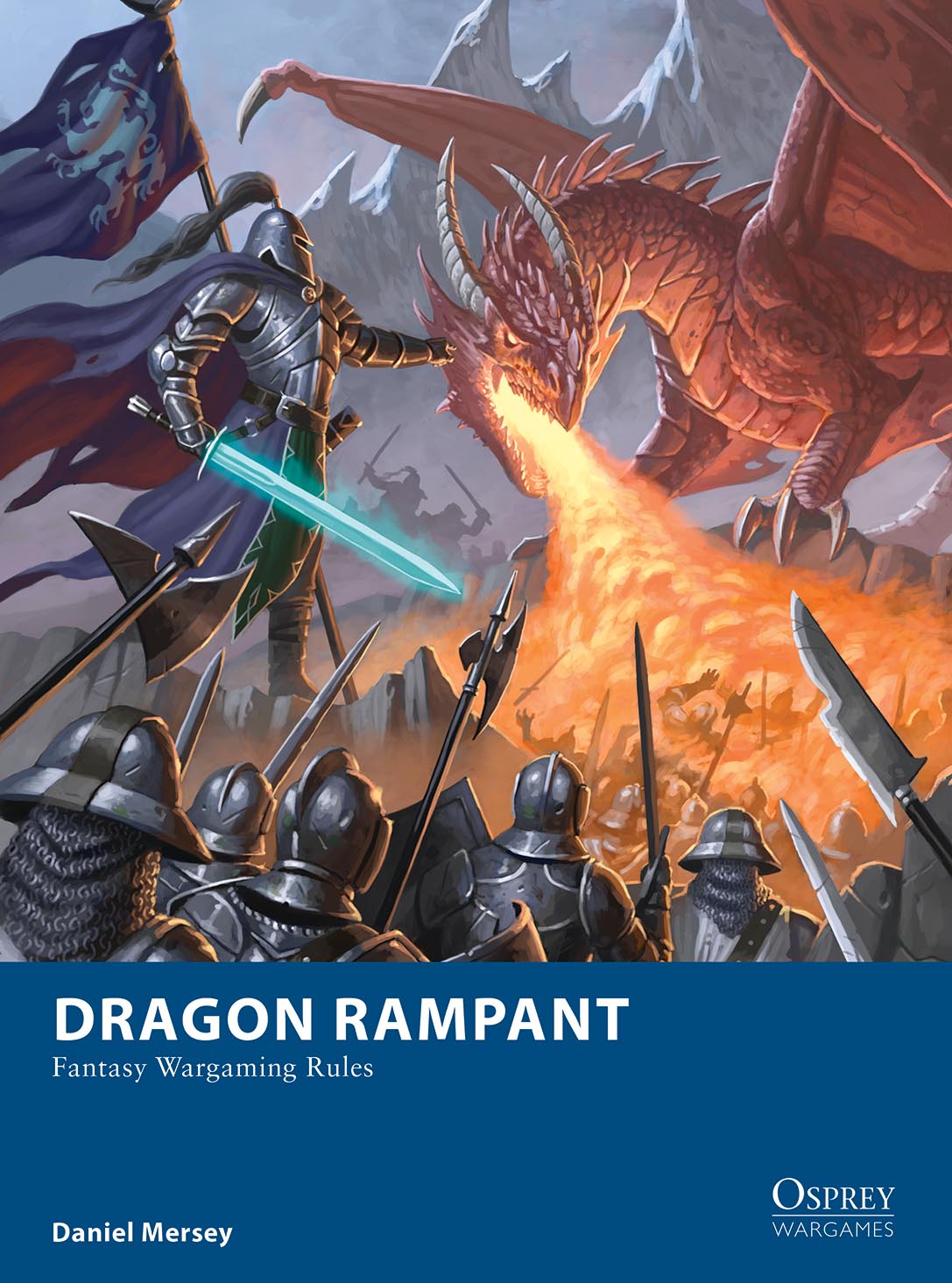Miniature from Curteys Miniatures, the Mounted Bishop pack.
Unfortunally ther is´t much historical information about Bishop Thomas. For sure he wasn´t a Finn... more likely a Swedish nobleman or according to Swedens most renowned historians Bishop Thomas was a Englishmen that served in Uppsala before he was apointed Bishop of Åbo/Turku.
No further information on the bishop's activities has survived before he was granted resignation by Pope Innocent IV on 21 February 1245. According to the Pope, Thomas had admitted committing several felonies, such as torturing a man to death, and forging a papal letter. Church representatives to oversee the resignation were the Archbishop of Uppsala and the Dominican prior of the Dacian province. Thomas donated his books to the newly established Dominican convent in Sigtuna and went on to live his last years in the Dominican convent in Visby, Gotland. He died there in 1248.
During Thomas' episcopate, Finland is listed among the lands under the papal legate in the Baltic region, originally the Bishop of Zemgale, Baldwin, and then William of Modena, first on 28 January 1232 and last on 15 July 1244. This was a radical realignment of the bishopric's position, since the Pope had earlier used Swedish bishops to assist the Finnish church, as evident from papal letters from 1171 (or 1172), 1221 and 1229. On 24 November 1232, the Pope even asked the Livonian Brothers of the Sword to provide forces for the unnamed Bishop of Finland to defend the country against the Novgorodian attacks...but it seems that they were busy elsewere;)
After Thomas had resigned in 1245, there was no immediate successor to him. The diocese continued to be overseen by William at least until 5 June 1248. Finland is not listed among the Swedish dioceses in surviving documents from 1241 and 1248, but appears among them in 1253.
Even though Thomas is the first known Bishop of Finland, it is certain that he was not the first bishop overall. An unnamed Bishop of Finland is mentioned dead in a letter by Pope Innocent III already in 1209. A 15th century chronicle names bishops Henry, Rodulff and Folquinus before him, but no indisputable records survive of them.
Most commonly, Thomas is speculated to have been the unnamed Bishop of Finland to whom Pope Gregory IX replied in January 1229 with several letters of great importance to the church, in the aftermath of major Finnish losses in the battle against the Republic of Novgorod. Church representatives ordered by the Pope to assist the unnamed bishop were the Bishop of Linköping and the Cistercian abbot in Gotland.
Thomas' identification with the bishop remains doubtful. A surviving letter by Pope Gregory IX directly to the chaplain of Nousiainen on 20 October 1232 makes the Finnish see appear vacant. The letter handled the same land dispute that Thomas himself addressed two years later. In some copies of the letter, the Bishop of Finland is also referred to as "N.", while not directly saying whether he was still in office or not.
A papal letter to an unknown Bishop of Finland was also sent already in 1221.
Violent anti-church clashes in Tavastia, central Finland, mentioned in a letter by Pope Gregorius IX in 1237, have been attributed to Thomas' harsh methods of Christianization, but without direct evidence for that conjecture. The letter, addressed to the Archbishop of Uppsala, does not mention the Bishop or Diocese of Finland in any way. Information about the uprising had also originated from the temporarily sidelined Archbishop, who seems to have used the occasion to remind the Pope about Uppsala's earlier contributions to the missionary work in the north. The Pope had clearly not known where Tavastia exactly was, and eloquently urged the Archbishop to send in a crusade.
The Livonian Brothers of the Sword had been all but annihilated in the Battle of Saule in 1236. Even if there is no other evidence of their presence in Finland than the earlier papal letter from 1232, both the Archbishop and the Tavastians seem to have been on the move right after their demise. There had also been a revolt against the Germans in Estonia in 1236.
Based on the letter, some historians have tried to date the so-called Second Swedish Crusade to 1238 or 1239, listing it as Thomas' accomplishments as well.
The speculation is based on the 14th-century Russian Primary Chronicle mention of Finns and Tavastians fighting on the Swedish side, which according to some historians would have been organized by the bishop.




















He looks very nice!
ReplyDeleteChristopher
Wonderful figure, with fantastic colours!
ReplyDeleteWow!!
ReplyDeleteWhat's the more impressive?...
the historical documentation or the painting work ?
............ (one hour later:)
BOTH !!!!!!
Lovely figure and painting...and history!
ReplyDeleteBeautiful painting!
ReplyDeleteThanks for all this historical informations. And nice mini as usual ;)
ReplyDeleteWhat more could I want..a cracking painted fig and it´s history...well done that man! :-D
ReplyDeleteCheers
paul
Great paiting.
ReplyDeleteAnd nice litle history lesson.
But one Bishop? That hardly make one cheesboard... You will need more miniatures. ;)
Absolutely beautiful work
ReplyDeleteVery impressive painting there Michael. He's looking well prepared to go out and convert some heathens.
ReplyDeleteWonderful, simply wonderful!!!
ReplyDeleteThanks mates !!! Glad you liked the Bishop, he´s up for some conversions.
ReplyDeleteNow I need him dismounted... any suggestions of minis, Curteys Miniatures dosen´t have him dissmounted yet...might get me a Bishop Helmet head from them and make me one my self....
Have a nice weekend !
Best regards Michael